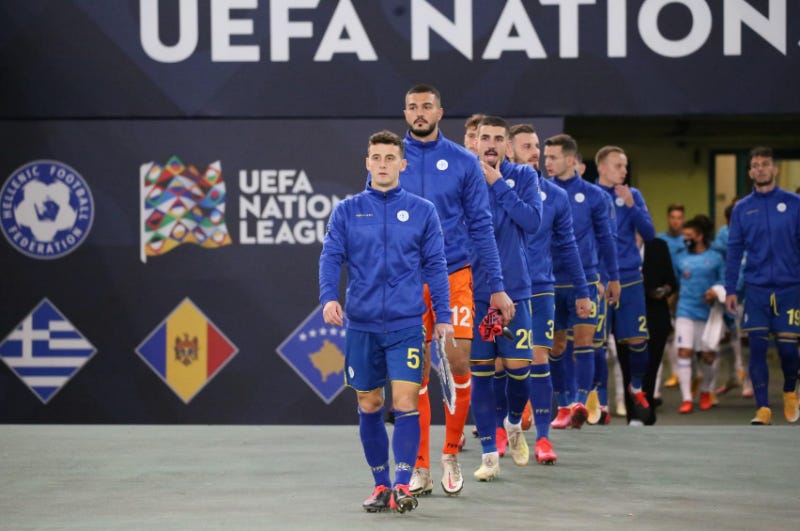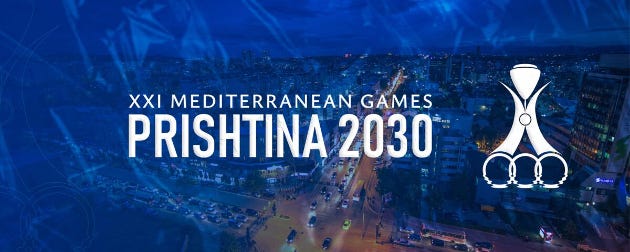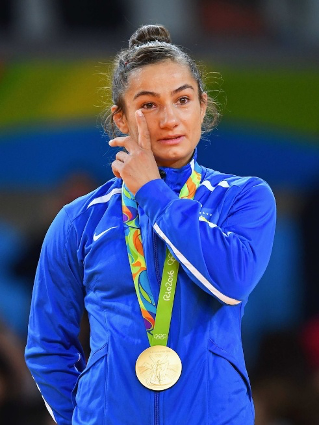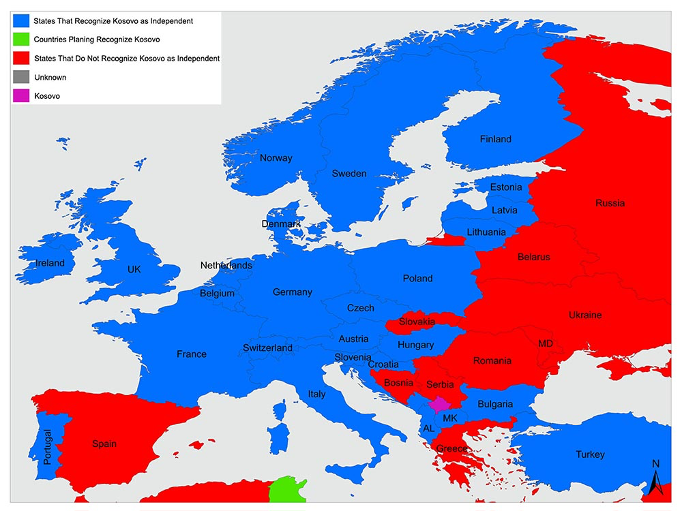Legitimising a Nation Through Sport: How Kosovo Stepped onto the Global Stage
Guest author and sports diplomacy expert Stratos Chiotis examines how Kosovo has strategically leveraged sports to build global recognition, legitimacy, national identity, and diplomatic influence.

What does it mean to be a nation in the eyes of the world? For Kosovo, sport has offered not just an answer—but a path. Since declaring independence from Serbia in 2008, Kosovo has faced the slow and often frustrating process of international recognition. But where traditional diplomacy has stumbled, sport has often sprinted ahead.
From judo gold to Olympic flags, Kosovo has embraced sport not only as a source of national pride but as a tool for legitimacy, visibility, and soft power.
Recent events confirm Kosovo’s evolving sports diplomacy strategy - from the symbolic walk-off during a Nations League match to hosting the 2030 Mediterranean Games. These moves underscore a clear pattern: leveraging sport to assert national identity and gain global legitimacy.

🥇 Olympic Visibility as Political Strategy
When the International Olympic Committee (IOC) granted Kosovo full membership in 2014, it wasn’t just a sporting win - it was a diplomatic milestone. Kosovo’s debut at the 2016 Rio Olympics marked the beginning of a powerful campaign for international visibility, one athlete at a time.
Names like Majlinda Kelmendi, who won Kosovo's first Olympic gold medal in judo, became not only sporting heroes but symbolic ambassadors of national identity and resilience. Every appearance of the Kosovo flag at international events subtly but clearly asserted: “We are here, and we are a nation.”

🛠 Building Identity through Sport
Kosovo’s approach to sport has gone beyond elite success. The government and civil society have invested in sports infrastructure, youth programs, and community events to cultivate both talent and national cohesion. These efforts have served a dual function:
Internally, they build unity and a shared sense of identity.
Externally, they project an image of normalcy, capability, and progress.
In a world where recognition is as much about perception as policy, these optics matter.
🌍 Not Just Kosovo: Lessons from the Global Arena
Kosovo is not alone in turning to sport for international traction. A comparative glance reveals similar strategies:
Qatar hosted the 2022 FIFA World Cup as a calculated move to boost its soft power and diversify its global image—despite criticism over human rights.
Saudi Arabia, through Vision 2030, is investing in boxing, motorsports, and football to signal its modernization and shift away from oil dependency.
Even newer states like South Sudan and Timor-Leste have leveraged sport to unify fractured populations and place themselves on the global map.
🧩 Challenges on the Road to Recognition
Kosovo’s journey through sports diplomacy hasn’t been without friction. Financial constraints, political opposition from non-recognizing states, and the sheer weight of building sustained athletic success all remain real obstacles.
Still, these challenges have not dulled the ambition. If anything, they’ve sharpened Kosovo’s focus - on grassroots development, on athlete support, and on forging international partnerships through sport.

📌 What Can We Learn?
Kosovo’s case offers a compelling lesson: in the 21st century, sport is diplomacy. For nations with limited geopolitical leverage, sport can be a back door into global consciousness - an emotional, visual, and symbolic language understood everywhere.
From judo mats to football pitches, Kosovo has used sport not just to play, but to prove itself.
And in many ways, it’s winning.
References – Further Reading
Brentin, D., & Tregoures, L. (2016). Entering through the sport’s door? Kosovo’s sport diplomatic endeavours towards international recognition. Diplomacy & Statecraft, 27(2), 360-378.
Gauthier, R. (2019). Constructing statehood through sport: Football, Kosovo, and the Court of Arbitration for Sport. Cambridge University Press. https://doi.org/10.1017/S1744552319000193
Giulianotti, R., Collison, H., Darnell, S., & Howe, P. D. (2016). Contested states and the politics of sport: the case of Kosovo. International Journal of Sport Policy and Politics, 9(1), 1-16. https://doi.org/10.1080/19406940.2016.1217251
Grix, J., & Lee, D. (2013). Soft power, sports mega-events and emerging states: The lure of the politics of attraction. Global Society, 27(4), 521-536. https://doi.org/10.1080/13600826.2013.827632
Grix, J., Brannagan, P. M., & Houlihan, B. (2023). Unpacking the politics of sportswashing: It takes two to tango. Frontiers in Sports and Active Living, 5, 1142878.
Næss, H. E. (2023). A figurational approach to soft power and sport events: The case of the FIFA World Cup Qatar 2022. Frontiers in Sports and Active Living, 5, 1142878.
Nye, J. S. (2011). The future of power. Public Affairs.
Rexhepi, R., & Sahiti, V. (2021). The impact of sports diplomacy on improving Kosovo's international image. Prizren Social Science Journal, 5(2), 247.
About Stratos Chiotis - guest author:
Stratos Chiotis has seen first-hand how sport can bridge divides and foster connection - even in crisis settings. From the refugee camps of Lesvos and the war-affected regions of Ukraine to the Olympic stage in Paris, his journey spans humanitarian response, international sport events, and EU sport policy. His academic and professional interests lie in the role of athletes as informal diplomats, dual-identity representation in sport, grassroots diplomacy, and the intersection of sport with geopolitics and social change. He recently completed his postgraduate studies in International Sports Diplomacy at the @Magyar Testnevelési és Sporttudományi Egyetem (TF) (Hungarian University of Sports Science) and is currently a trainee at the @European Olympic Committees EU Office - EOC EU Office in Brussels.




